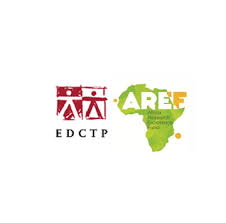In the ever-evolving landscape of education, a concept that has gained significant momentum is \”Self-Scholarship.\” Unlike traditional scholarship programs that are often associated with institutional recognition and external funding, self-scholarship is a personal commitment to lifelong learning and knowledge acquisition driven by individual motivation and curiosity.
Self Scholarship
This emerging trend reflects a shift towards a more self-directed approach to education, where individuals take charge of their learning journey beyond the confines of traditional classrooms.
The Essence of Self Scholarship
Self-scholarship is not confined to a specific age group, academic background, or professional status. It is a mindset that encourages individuals to become active seekers of knowledge, continuously exploring new subjects, expanding their skill sets, and fostering a deep sense of intellectual curiosity. At its core, self scholarship is about recognizing the value of learning for its own sake and the personal growth that comes with it.
Characteristics of Self Scholarship
- Autonomy and Independence: One of the defining features of self-scholarship is the autonomy it provides to individuals. Rather than relying on structured curricula, self-scholars choose their own learning paths, allowing them to explore areas of interest that may not be covered in conventional educational settings.
- Lifelong Learning: Self scholarship extends beyond formal education, emphasizing the importance of continuous learning throughout one\’s life. This commitment to lifelong learning ensures that individuals stay adaptable in an ever-changing world, acquiring new skills and knowledge as needed.
- Curiosity and Exploration: Curiosity is the driving force behind self scholarship. Individuals actively seek out information, resources, and experiences that pique their interest, leading to a more profound and meaningful engagement with the subjects they choose to explore.
- Resourcefulness: Self-scholars are resourceful in finding learning materials and opportunities. With the vast array of information available online, from courses to forums and research papers, individuals can craft their unique learning experiences tailored to their needs and interests.
- Goal Setting and Reflection: Setting personal learning goals and reflecting on progress are integral components of self-scholarship. This reflective process allows individuals to assess their achievements, identify areas for improvement, and adjust their learning strategies accordingly.
Benefits of Self Scholarship
- Personal Empowerment: Self scholarship empowers individuals to take control of their educational journey. This sense of ownership fosters confidence, independence, and a proactive approach to personal and professional development.
- Adaptability and Flexibility: In a rapidly changing world, adaptability is a crucial skill. Self-scholars, accustomed to navigating diverse learning environments, are better equipped to adapt to new challenges, technologies, and opportunities.
- Innovation and Creativity: The freedom to explore unconventional topics and think outside the box fuels innovation and creativity. Self-scholars often bring fresh perspectives to problem-solving and contribute to the advancement of knowledge in various fields.
- Personal Fulfillment: Beyond career-related benefits, self-scholarship contributes to personal fulfillment. The joy of learning for its own sake and the satisfaction derived from achieving self-set goals enhance overall well-being and life satisfaction.
Conclusion
Self scholarship is a powerful concept that transcends traditional educational paradigms, emphasizing the importance of personal agency in the pursuit of knowledge. In a world where information is readily accessible, individuals have the opportunity to become architects of their own education, shaping their intellectual journeys according to their passions and interests.
As the concept of self scholarship continues to gain recognition, it stands as a testament to the transformative potential of lifelong learning and the boundless possibilities that come with a curious and self-directed mindset.
Frequently Asked Questions
- What distinguishes self scholarship from traditional education?Self scholarship differs from traditional education in its emphasis on autonomy and self-directed learning. While traditional education follows a structured curriculum and is often guided by external institutions, self scholarship allows individuals to choose their own learning paths, explore diverse subjects, and acquire knowledge based on personal interests. It prioritizes lifelong learning, adaptability, and the joy of learning for its own sake.
- How can one embark on a journey of self scholarship, and what resources are available?Initiating a journey of self scholarship involves cultivating a mindset of curiosity, autonomy, and a commitment to continuous learning. Individuals can start by identifying their interests and setting personal learning goals. A wealth of online resources is available, including educational platforms, forums, podcasts, and open-access research materials. Leveraging these resources allows self-scholars to tailor their learning experiences, fostering a resourceful and independent approach to acquiring knowledge.
- What are the tangible benefits of embracing self-scholarship in both personal and professional realms?Embracing self scholarship offers a range of benefits. On a personal level, it leads to increased personal fulfillment, as individuals derive satisfaction from the pursuit of knowledge aligned with their passions. Professionally, self-scholars are equipped with adaptability, resourcefulness, and innovative thinking, making them valuable contributors in rapidly evolving work environments. The benefits extend beyond conventional career success, enriching the individual\’s life through a continuous journey of learning and self-discovery.






